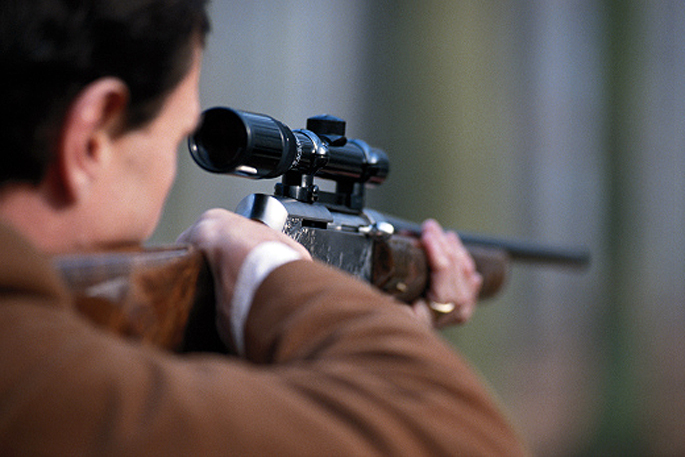Two surgeons are calling for more airgun restrictions after research that saw them use air rifles to shoot pig carcasses.
In a paper published today in the New Zealand Medical Journal, surgeons Ben Black and Kevin Peek say they are shocked at how easily the shots deeply penetrated the chest walls of the pigs.
The study was prompted by treating people who had almost died from shots to the chest from air rifles, which can be sold to anyone aged over 18 without any background checks or license.
In the experiment, they fired a .22-callibre spring-loaded airgun into the left-hand chest walls of the "porcine cadavers", which had been ethically obtained from the University of Auckland.
They then performed an autopsy.
Out of 10 shots, six would have been lethal or potentially lethal, with nine of them penetrating the chest wall to an average of 10.6cm.
Ben says the extent of the damage is surprising.
"We were the same as most people in thinking, 'Air rifles - they're the kind of weapon that kids use to clink cans in the back yard.'
"But these contemporary weapons [are] very much able to cause a lethal injury at five or 10 metres," he says.
Many airguns are more like small-bore rifles, the researchers say. They hope the medical journal paper can help argue the case for tighter restrictions on their sale.
Ben says both the surgeons have encountered dangerous and deliberate air rifle injuries at work.
In one instance, heart surgery was needed in the emergency department; in another, a pellet had entered the chest and passed through a patient's lung.
"These are patients that very nearly died or would have died without urgent medical intervention," he says.
In separate research, not yet published, the surgeons examined 10 years of gun trauma at Auckland Hospital.
A third of the injuries were caused by air rifles - many of which had been fired deliberately, says Ben.
In the 1980s and 1990s nearly all such injuries were accidental.
Two very high-powered types of airgun required a license in New Zealand, but not the spring-loaded variety used by the researchers.
Ben says many similar countries restrict the sale of air rifles based on how fast the pellets went, but in New Zealand it's based on the type of mechanism.
This means although the rifles have become more powerful, they still did not require a license.
In their paper, the pair say the voice of medical workers is often absent in rules to prevent trauma and harm.
"Our study adds some medical validity to the opinion that these higher-velocity air weapons should be considered more like a small-bore rifle in terms of the lethality," they say.



2 comments
Yes, lethal.
Posted on 08-03-2024 22:23 | By SonnyJim
Air guns are now lethal, and dangerous in the wrong hands. From the simple break-to-charge models that kids used to wander about with in the countryside, they have been engineered for killing rabbits on sight. If people with higher power weapons think they are little different to ordinary slug guns, then yes, there are going to be injuries requiring hospital assistance. Dads should think twice if pressured by their sons for a slug gun present, and not buy a high-power model registered to the dad to loan to the son.
To a man with a hammer...
Posted on 10-03-2024 17:23 | By morepork
... everything is a nail. People in rural areas can justify weapon ownership for pest control, rabbits, stoats, etc.; people in urban areas may justify them for target shooting, controlling rats, and so on, but, in both cases, it is not too long before the guns are being used to shooot at anything, including humans... Next door's cat or dog intrudes on your property? Go get the gun...
As long as we have a part of our nature that indulges cruelty and is not controlled or bred out of us, (you'd hope that thousands of years of living in communities would do that...), we are going to need tighter control of lethal weapons. The concern of these surgeons shows that some weapons are slipping under the radar of control. It needs to be addressed and all of us should question WHY we are buying such a weapon.
Leave a Comment
You must be logged in to make a comment.